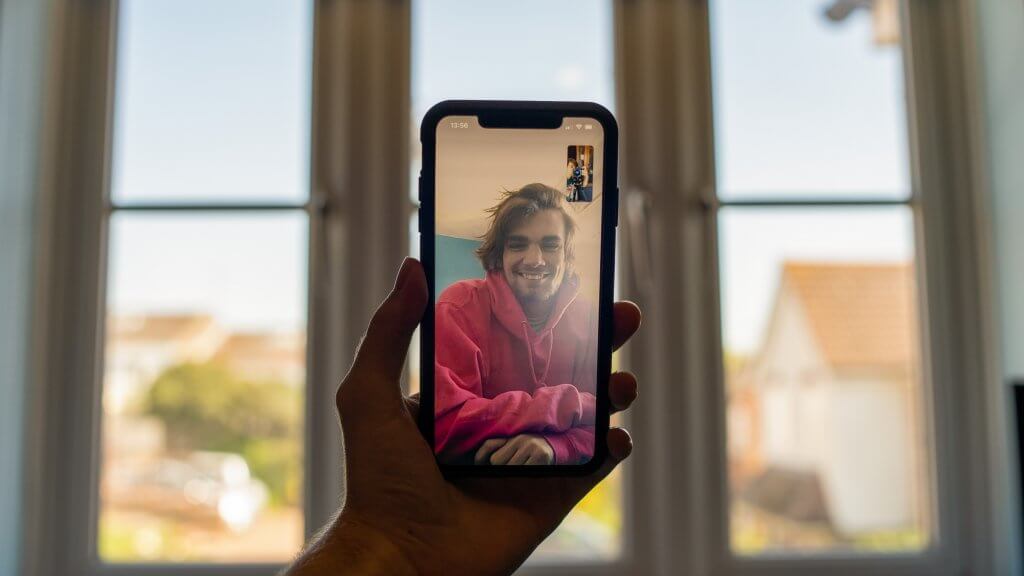
The New Year has brought the welcome news of the COVID-19 vaccination programme, and much-needed light at the end of the tunnel for everyone. But it’s also brought pressure of another lockdown at a time when many of us are flagging from being isolated for so long.
Most of us are cut off from people we care about; we might also be spending a lot more time with people who share our home, which is putting a strain on relationships. Some of us are experiencing ‘digital fatigue’ from so many video calls.
If you’re having trouble connecting with others, or struggling with feelings of loneliness, this article is for you.
As a person-centred counsellor I understand the importance of human connection and I’ve some great tips for helping you stay engaged with others, so you (and they) can feel positive and healthy in the weeks leading to looser restrictions.
Schedule a space for talking – and listening
Too often, we get accustomed to putting on a brave face, even with those close to us. At the same time it can be easy to get wrapped up in our own worries and forget that others are struggling too. If you live with other people, it can be a good idea to set aside some time for a catch-up to discuss the highs and lows of the week.
Invite family or housemates to share their feelings, and give yourself space to talk, too. Sharing your thoughts with someone can help you gain a new perspective on them, and help you feel less alone.
Exercise to avoid conflict
Even people we care about can get on our nerves when we’ve been in close contact with them for a long time! If you live with people and find tempers are fraying, regular exercise could be the answer. Research has shown that exercise is a great way to reduce the negative effects of confinement.
It can be a good idea to use your allocated time out of the house for walking, cycling or jogging. If the weather isn’t on your side, try a yoga video or an online fitness class instead. Just 20 minutes of exercise a day will boost endorphins and reduce tension.
Not all of us feel safe at home; if you’re at risk of domestic violence, lockdown restrictions don’t apply – you can leave home and seek support from family, friends or charities. Call Refuge for assistance, or in an emergency call 999.
Get creative with video calls
Communicating through video call is different from meeting in person, and sometimes it can feel forced. If you’re running out of things to talk about, get creative! There are lots of virtual activities you can try. Here are a few ideas:
- Game night – taking part in a quiz is a great distraction from the stress of lockdown because it prompts you to concentrate on something else. Get a team together and join an existing quiz via Zoom, or why not organise your own quiz?
- Virtual book club – reading doesn’t have to be done in isolation! Invite people to join a group on WhatsApp or Messenger, and choose titles that are easily available online. Alternatively, look for existing book clubs on reader’s websites like Goodreads.
- Virtual dinner party – do you like cooking? Turn it into an event and invite others to cook the same recipe with you via video call, then you can sit down to enjoy the meal together.
- Movie night – streaming platforms like Netflix have a ‘watch party’ feature that lets you sync a film or series with others, and comment via live chat as you watch. Alternatively, you could attend a virtual event like an online comedy club.
Listen to the radio
If you’re stuck at home alone and find yourself struggling with feelings of isolation, a friendly human voice can be surprisingly comforting.
Listen to some chatter on the radio, download an audiobook or listen to a podcast on a subject you find interesting. Knowing others are listening to the same thing can also give you a sense of connection.
Write an old-fashioned letter…
Getting fed up with Zoom calls and virtual activities? If digital fatigue is setting in, remember that technology isn’t the only way to stay in touch. Everyone likes getting things through the post, so why not go old-school and compose a letter or postcard for loved ones? You could even send them a small gift or a care package.
…Or send an email newsletter
If you’re cautious about sending physical items through the post, a great alternative for sharing news – without the stress of staring into a camera – is to send an email. This can also be a good way to reach out to older relatives who aren’t confident about using video technology.
Connect with new people online
Social media groups and online forums are a good way to forge connections while in lockdown. Find like-minded people on groups related to interests you enjoy. You could interact by posing questions and commenting on other people’s posts.
There are also online support groups run by mental health charities which offer a safe space to share your feelings, including Side by Side and the SANE Support Forum. These are available 24 hours a day.

Enrol in a virtual class
If you’re at a loose end or feeling lonely, why not occupy yourself by learning something new? Many online courses have forums where you can connect with fellow learners. Lots of online providers offer free courses too, and I’ve listed some at the end of this article.
Pick up the phone
If you’re fed up with video calls, or you’re finding them a strain because you use Zoom for work, don’t forget you can make an old-fashioned phone call! Just hearing a friend’s voice can help you feel connected and reduce loneliness.
If it gets too much…
Finally, if you do feel lockdown is having a big impact on your mental health, reach out to a professional such as your GP or a trained counsellor. Counselling gives you the opportunity to explore your feelings frankly in confidence and without judgement, so you can find new ways of dealing with them.
If you would like to talk to a trained therapist, you’re welcome to get in touch with me. I’m a registered person-centered counsellor and hypnotherapist. I provide both telephone counselling and online counselling via Skype to people across the UK.
In these difficult times, I’m also offering emotional support free of charge remotely to anyone on a low wage, on benefits or receiving a pension. Please contact me for more information.
Useful links and helplines
The Samaritans – is a free helpline offering support to anyone in distress. It’s run by trained volunteers and it’s open 24/7.
The National Counselling Society (NCS) – the professional association for counsellors website has a national directory of qualified therapists, searchable by area.
Refuge freephone 24-hour national domestic abuse helpline: 0808 2000 247
The Blurt Foundation is an organisation that aims to increase awareness and understanding of depression. The website has an online shop where you can order BuddyBox care packages for yourself or as a gift.
FutureLearn – an online learning platform with a wide choice of free courses and a community of members.
Coursera – an online learning platform with a wide choice of free courses, hosted by top universities.